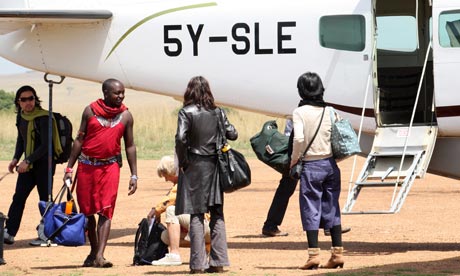Kenya signed agreements with Japan for 31 billion Kenyan shillings ($360 million) in loans and grants to improve roads, which may reduce the cost of transporting goods, Finance Minister Robinson Githae said.
Sh28.9b for Dongo Kundu Bypass
The loan for 28.9 billion shillings involves building a road from Mombasa port’s container terminal and a bypass linking the seaside city’s South Coast to the mainland, Githae told a media briefing in the capital, Nairobi, today.
 image grabbed from skyscrapercity.com
image grabbed from skyscrapercity.com
Kenya also will receive a grant of 1.7 billion shillings to widen 4.7 kilometers (2.9 miles) along Ngong Road in Nairobi to four lanes as well as put down sidewalks and drainage systems, Githae said.
Growing investment to improve the road network in East Africa’s largest economy will lead to savings for businesses and consumers, Akihiko Tanaka, president of the Japan International Cooperation Agency, said at the same event. Transport expenses account for 40 percent of the price of goods in Kenya, he said.
Mombasa has the busiest port in East Africa, serving landlocked countries including South Sudan, Uganda and Rwanda.
Source: http://www.bloomberg.com/news/2012-06-02/kenya-signs-japan-funding-accord-for-roads-in-nairobi-mombasa.html
Sh1.68b Japanese grant to expand Ngong Road
Construction that will transform Ngong Road into a dual carriageway is expected to be underway in the next few months, with a projected completion date of February 2015.
 image grabbed from skyscrapercity.com
image grabbed from skyscrapercity.com
The notoriously congested road that has been a headache for motorists heading to Karen and the Central Business District will be expanded courtesy of a Sh1.68 billion (¥1.56 million) grant from the Japan International Cooperation Agency (JICA).
Newly appointed JICA President Akihiko Tanaka, said it will take a few more months before actual construction can begin. However once complete, the more efficient Ngong Road should see a decrease in transport costs and travel time.
read more: http://www.capitalfm.co.ke/news/2012/06/sh1-6b-japanese-grant-to-expand-ngong-road/



























